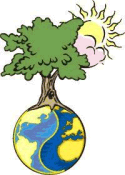 |
Natural Systems SolutionsReconnecting with Nature
|
|
"The scarcest resource is not oil, metals, clean air, capital, labor, or technology. It is our willingness to listen to each other and learn from each other and to seek the truth rather than seek to be right." |
||
|
Home Overview Philosophy Personal Therapy Organizational Consulting Community Sustainability Campaign for Our Lives Events, Meetings Natural Systems Blog Biographies Contact Information Projects Articles EcoQuotes Links Donate |
CASI Project ProposalScope of WorkRE: Reaching common understanding on what is meant by sustainability and what will be required for our community to be considered so: Laying the foundation for Tucson's leadership role in the transition to a future that works for all lifeIntroductionThe CASI project consists of three phases, which encompass workshop implementation and delivery, and regional inventory and report. They require 8-18 months in total to complete, mainly depending on availability and completeness of data sets, and current level of community awareness and support. Most communities could have it completed in under 12 months. The key personnel leading and directly involved in the project are Dave Ewoldt, co-founder and executive director, and Allison Ewoldt, co-founder and education director of Attraction Retreat/Natural Systems Solutions. Phase 3 of the project will require two additional full-time staff, with approximately four intern/volunteers from any combination of the government, environment, or academic sectors. Phase One (planning) ~3 months, $15,000
Phase Two (presentation and indicators) ~ 1 month, $7,500
Phase Three (inventory) ~8-12 months, $80,000-$150,000
Possible future uses of final report
The inventory phase of the CASI project should run concurrently with Phase Two, and will usually require 8-12 months for completion, depending on availability of data sets, their completeness, and support from the local community. The project team will consist of two full-time and four part-time members (2 FTE), augmented by research assistance from project co-sponsors and local colleges, non-profits, and the business community. It's also important to realize that the majority, if not all, of the information and data sets already exist to complete the regional asset inventory. The information is held by local governments, community organizations, economic and business organizations, local universities, and agricultural bureaus. The aspect that is currently missing is a systemic framework to organize and analyze the data sets in a comprehensive manner from a perspective that adheres to the natural systems principles that provide the foundation from which the definition of sustainability emerges. With this perspective, we can introduce the variables of global warming and energy decline, as well as the economic development necessary to provide resiliency in rapidly changing times. This perspective also allows rational planning for disaster management should collapse occur despite all of our best efforts in mitigation. This is a dynamic project, and is amenable to refinement to make it acceptable to a broader constituency of diverse elements. But to be successful, it must still adhere to the natural systems principles that keep any living system healthy, vibrant, and resilient. This means in developing the transition steps to a sustainable future, the process must start with honestly looking at what sustainability actually means and entails. We must decide if we want to continue participating in a system that is about to bring life as we know it to a rather ignominious end, or if we want to participate in creating a future that works for us, our children, and the rest of the natural world life depends on. A true definition of sustainability provides us with a rational and defensible tool to evaluate which of these paths any individual proposal or initiative heads us down. SustainabilityThe definition of sustainability, synthesized from dozens of working definitions employed by sustainability efforts around the world over the past twenty or so years is: Sustainability means to integrate our social and economic lives into the environment in ways that tend to enhance or maintain rather than degrade or destroy the environment; it is a moral imperative to pass on our natural inheritance, not necessarily unchanged, but undiminished in its ability to meet the needs of future generations; and it entails finding, and staying within, the balance point amongst population, consumption, and waste assimilation so that bioregions, watersheds and ecosystems can maintain their ability to recharge and regenerate. The latter aspect is also the core concept behind carrying capacity. This full definition of sustainability contains environmental, moral, and scientific aspects, and is what allows this definition, when applied to land use or economic development in the regulatory environment, to be legally defensible. It is wholly congruent with the 2004 decision by the Washington State Supreme Court, that "human health and safety trumps vested development interests." From this definition emerges a concept that is extremely important in the development of a sustainable future: one cannot be considered sustainable by making someone else, or another region, less sustainable. This has profound consequences for Central Arizona's reliance on the Colorado River, which, from a functional perspective, no longer reaches the sea. It should also be apparent from this definition that sustainability is not merely an environmental movement; it is a community movement. ParticipationHere is a sample list of the local groups that should be involved and whose leaders should participate in the initial workshops. Major sponsors will be drawn from this list:
If you would like to schedule an introductory consultation session or arrange a presentation or workshop for your group, please contact nature@attractionretreat.org or give Dave or Allison, co-founders of Natural Systems Solutions, a call at (520) 887-2502. |
|
"Experience teaches only the teachable." |
||